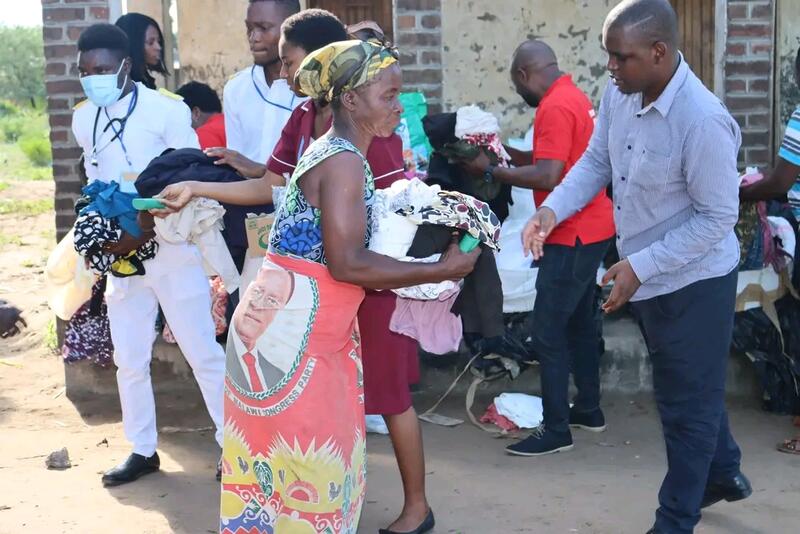This happened at a time when Malawi is experiencing the deadliest cholera outbreak in its recorded history.
- Our nurses are in despair! They don’t have enough hands or equipment, and they are also affected themselves, having lost their homes and loved ones. And this happens when we are still dealing with trauma and burnout from the covid-19 pandemic – the situation is really critical , says Shouts Simeza, President of the National Organisation of Nurses and Midwives of Malawi (NONM).
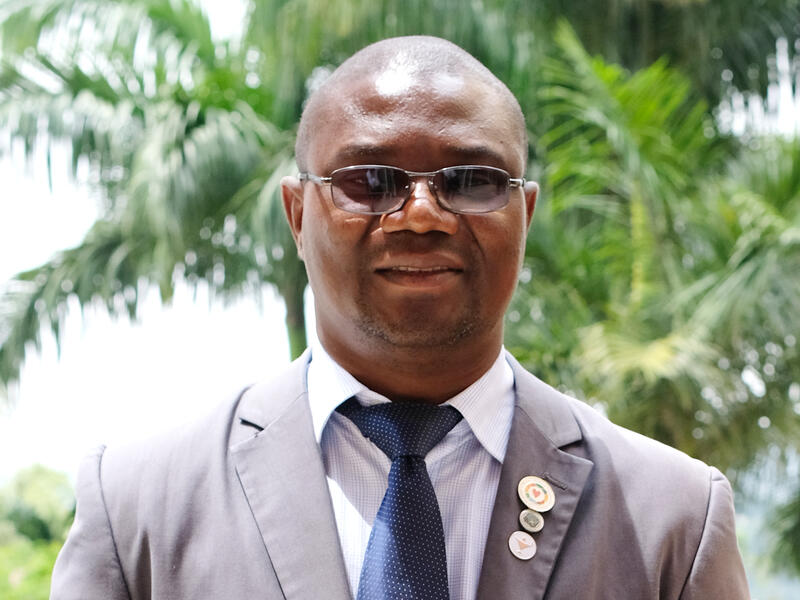
676 killed and 537 missing
Over 570,000 people have been displaced and at least 676 killed, as of 29 March 2023, with at least 1,400 people injured and 537 missing, according to authorities. In addition, 1713 lives have been lost to Cholera in the past year (Source: Public Health Institute of Malawi, 29th, March, 2023).
Floods and strong winds have led to extensive damage to health centres and schools, crops and livestock have also been lost, and houses, roads and bridges are washed away or under water.
- We started having heavy rains from 13th March, 2023, power outage followed immediately and we couldn’t do several tests including laboratory, pharmacy, X-ray, lighting and heating. Our health centre, including three others were soon submerged in flooded waters. Main road was cut off. We were evacuated immediately and hospital was closed, sa says Judith Mughogho, Nsanje Unit Matron.

The cyclone’s devastation has further increased the risk of spread of cholera. Infections are common in flooded areas with inadequate sewage treatment and drinking water. In addition, the floods have caused many communities to be cut off from food for many days, as well as causing widespread damage to farms and death of livestock, further exacerbating significant food security in many of these areas.
- I was in the forefront assisting casualties of the cyclone at the Acute Emergency Triage and Casualties Department at Queen Elizabeth Central Hospital. We were and still are overwhelmed with work, we don’t have essential medicines. I really think it would help if more healthcare workers are recruited, essential medicine supplies are made available and hospital staff are trained in basic life support skills, says Thokozani Elia, KuHes Clinic Nurse.
Lacking primary health care services
Health services have been further disrupted due to lack of accessible roads and electricity, and ambulances are having difficulty in picking up referral cases. Displaced people in camps are lacking primary health care services, including help with trauma and mental health issues.
- The cyclone brought a lot of confusion. There was panic because people were looking for ambulances and nurses to carry the people who were affected and injured due to the floods to the hospital. As a Senior Nursing Officer, I had to respond to these requests but, how? Roads are impassable, some nurses themselves are affected. It was really chaotic, says Miriam Hanjahanja, Senior Nursing Officer, Blantyre DHO.
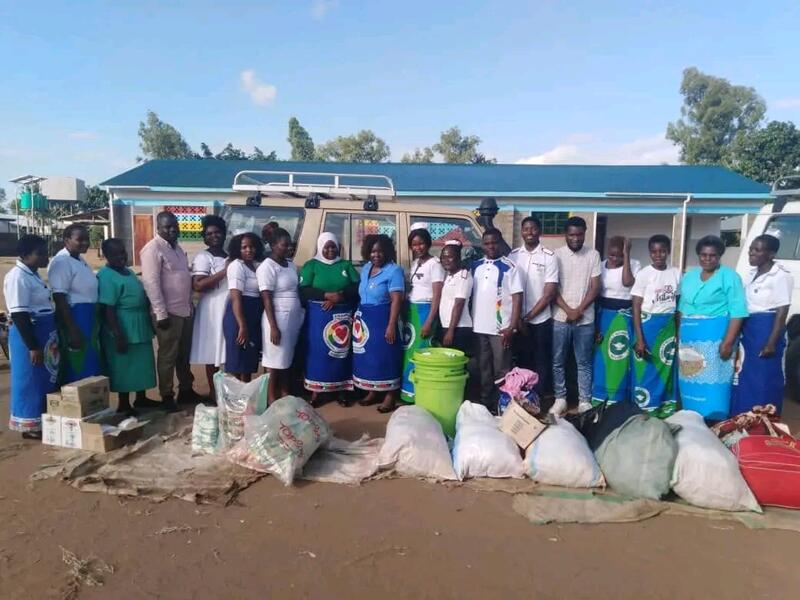
The situation is particularly difficult because national resources are extremely limited as the country still struggles to recover from the impact of covid-19. More than ever, the health system is overburdened, and nurses and other health workers have been stretched beyond their limits for months – even years.
Additional nurses
- Queen Elizabeth Central Hospital has been overwhelmed by bodies, in addition to injured people flocking in from all angles. It really is high time that more nurses are recruited – this is yet another deadly example that we are not prepared for any crisis, nor the next pandemic, says Peter Mvuma, Executive Director of NONM.
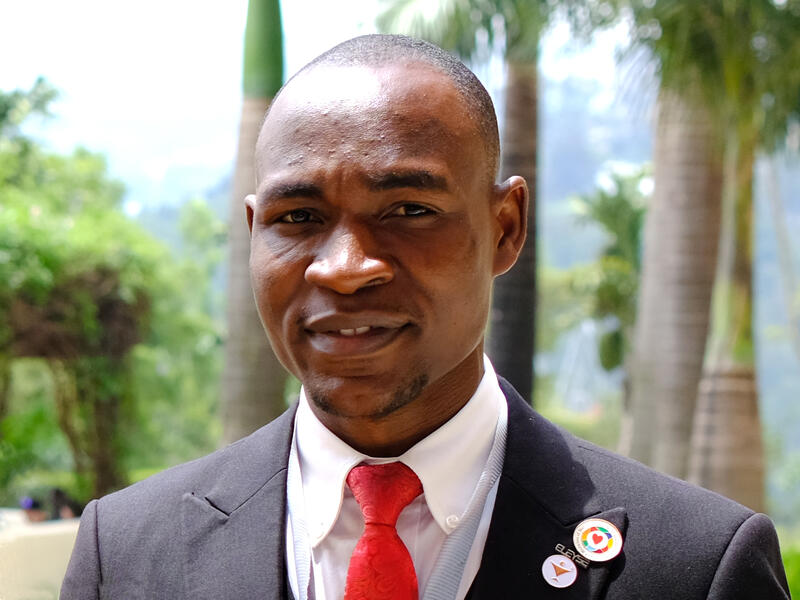
NONM has, however, managed to push through recruitment (on temporally basis) of additional nurses through various developing partners i.e. UNICEF, Medicines san Frontiers etc. So far about 300 healthcare workers have been employed to assist victims of this ordeal.
NONM through its membership is currently provided rescue support, moral and mental support and currently mobilizing more resources to directly support the victims and the nurses who have been affected by the cyclone.
The poor paying the price of climate change
Extreme weather is exacerbated by human-caused climate change. And even though Malawi is among the countries least responsible for climate change, being one of the poorest countries in the world (Source: World Bank).
- Mozambique and are among the countries least responsible for climate change, yet they are facing the full force of storms that are intensifying due to global warming driven mostly by carbon emissions from the world’s richest nations, said Tigere Chagutah, Amnesty International’s east and southern Africa director, to the Associated Press.
Dying from a preventable disease
Despite being a preventable disease, cholera can be a death sentence for the people of Malawi. The country does not have enough beds, IV stands nor fluids. And paradoxically, over 3000 qualified nurses are unemployed in spite of 52% nursing positions being unstaffed in the ministry’s establishment.
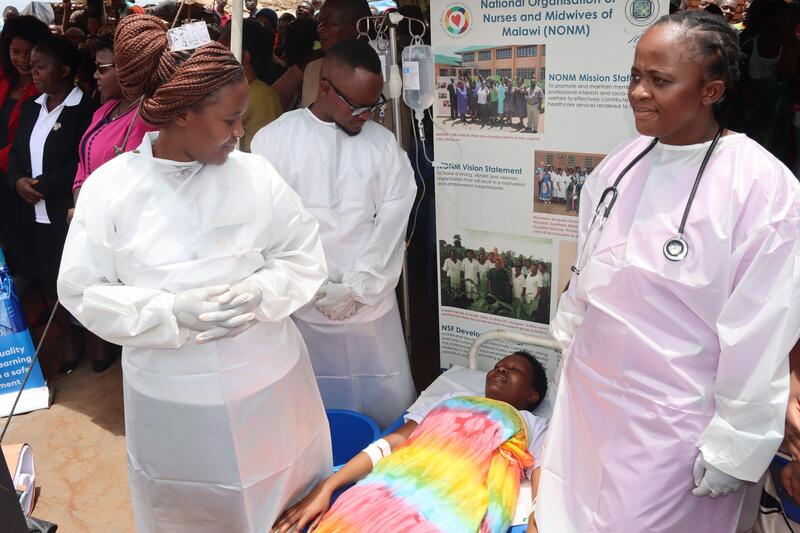
Furthermore, the people of Malawi are getting agitated and are rioting against health workers, causing damage to health facilities and injuring nurses. This is often due to lack of information and health education, resulting in the frontline workers – nurses – to be attacked and accused of spreading cholera and covid-19. Peter Mvuma has spent many days and nights in the country’s health facilities and on the phone, trying to calm angry mobs, protecting his nurse members.
Solidarity among nurses’ organisations
The Norwegian Nurses Organisation (NNO) has collaborated with NONM since 2006, supporting the organization in developing its organizational structures, enabling service provision to its members, and growing into a strong watchdog and advocate for nurses and midwives in Malawi.
The NNO also provided some additional support to NONM in the wake of Cyclone Freddy. Lill Sverresdatter Larsen and acting Vice President Kirsten Brubakk of the NNO, met President Shouts Simeza and Executive Director Peter Mvuma of NONM in Kigali, Rwanda in March 2023. Here Sverresdatter Larsen and Brubakk got information on the situation in Malawi.
The NNO and NONM was participants at the professional seminar “Nurses: A Voice to Lead - Invest in Nursing to Close the Gap”. The seminar was co-hosted by the Rwanda Nurses and Midwives Union and NNO.
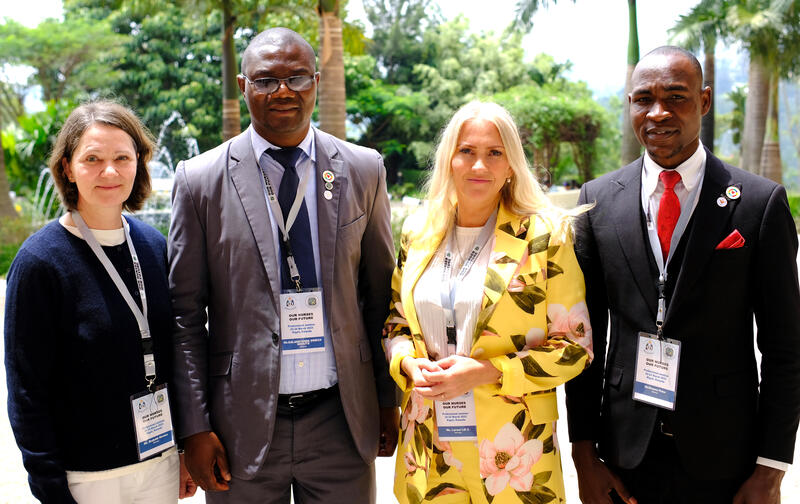
About Cyclone Freddy
The Associated Press writes that the cyclone has intensified a record seven times, and has the highest-ever recorded accumulated cyclone energy, which is a measurement of how much energy a cyclone has released over time. Freddy recorded more energy over its lifetime than an entire typical U.S. hurricane season.
